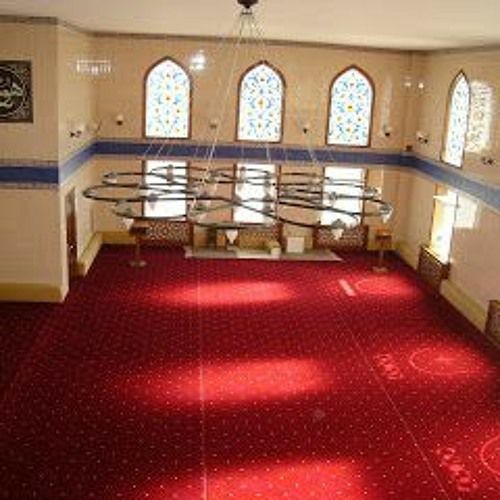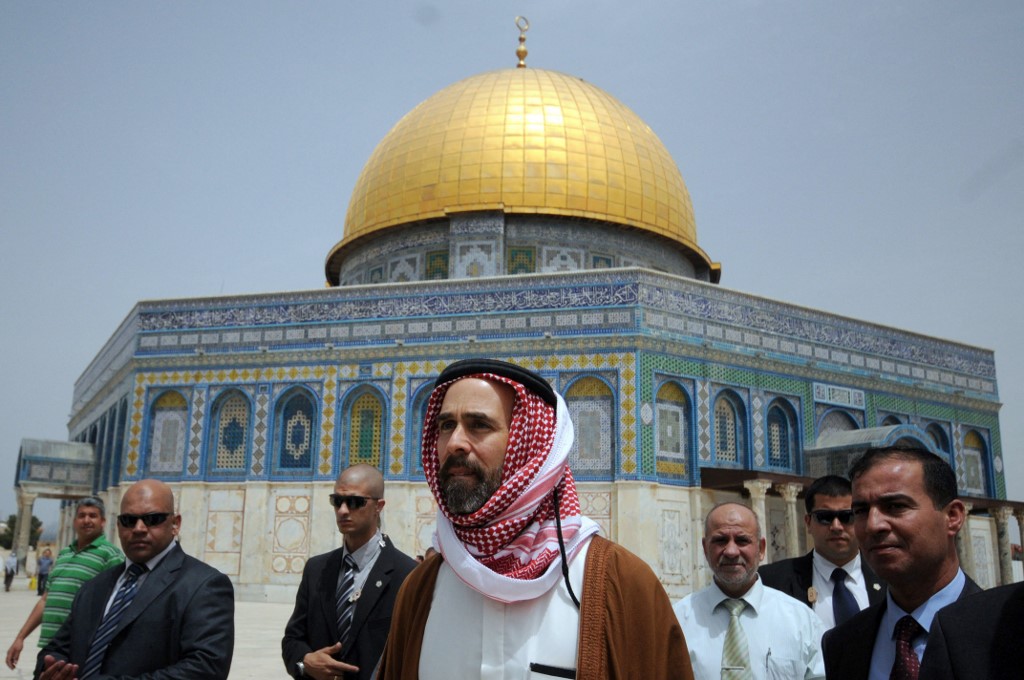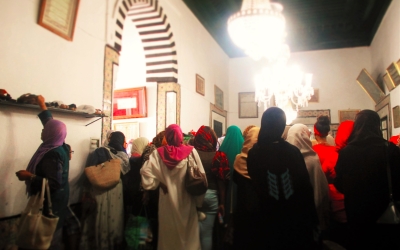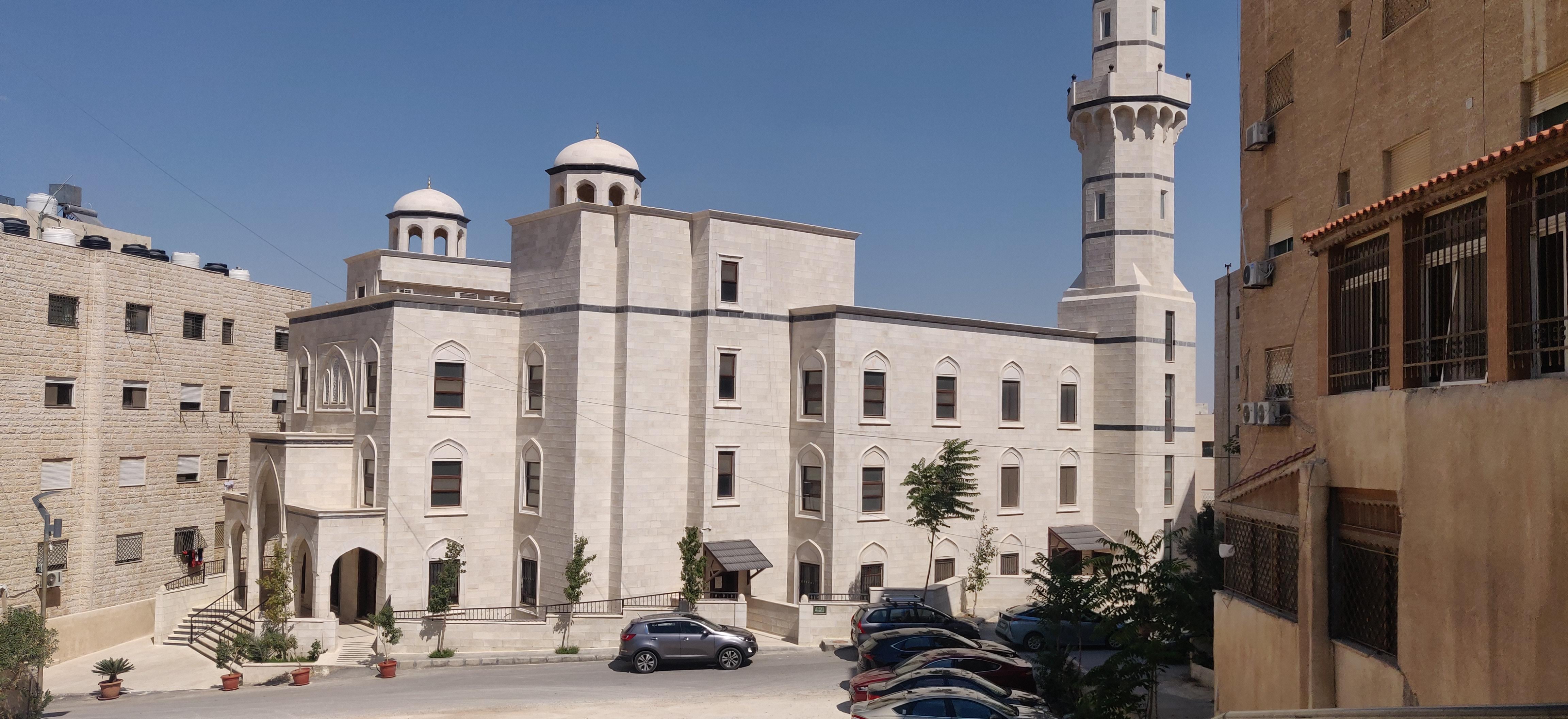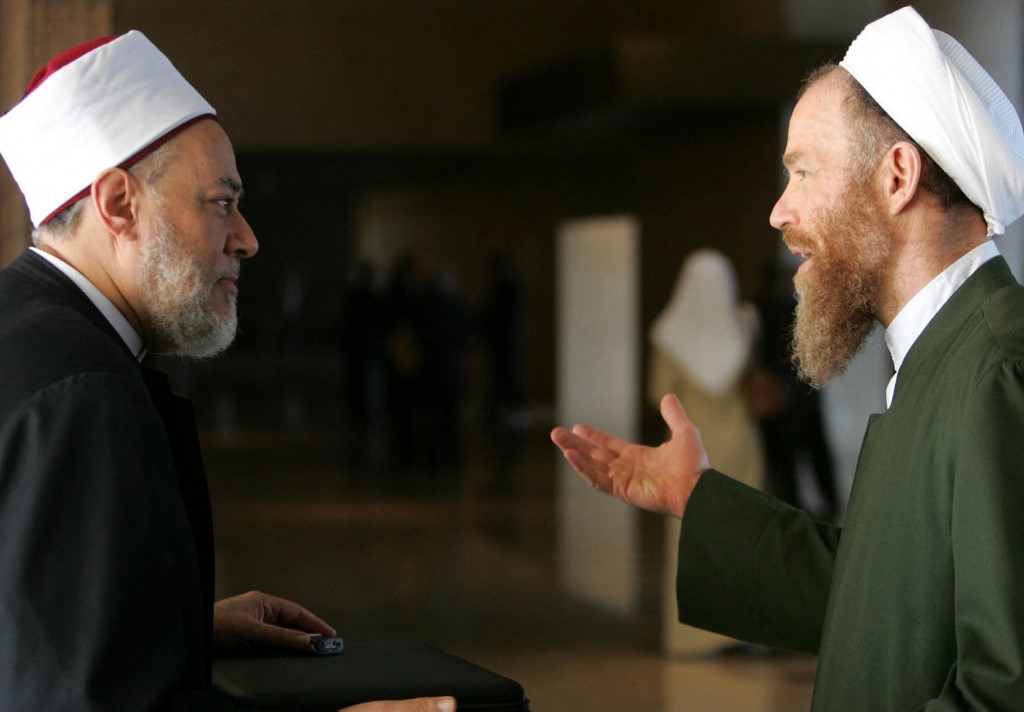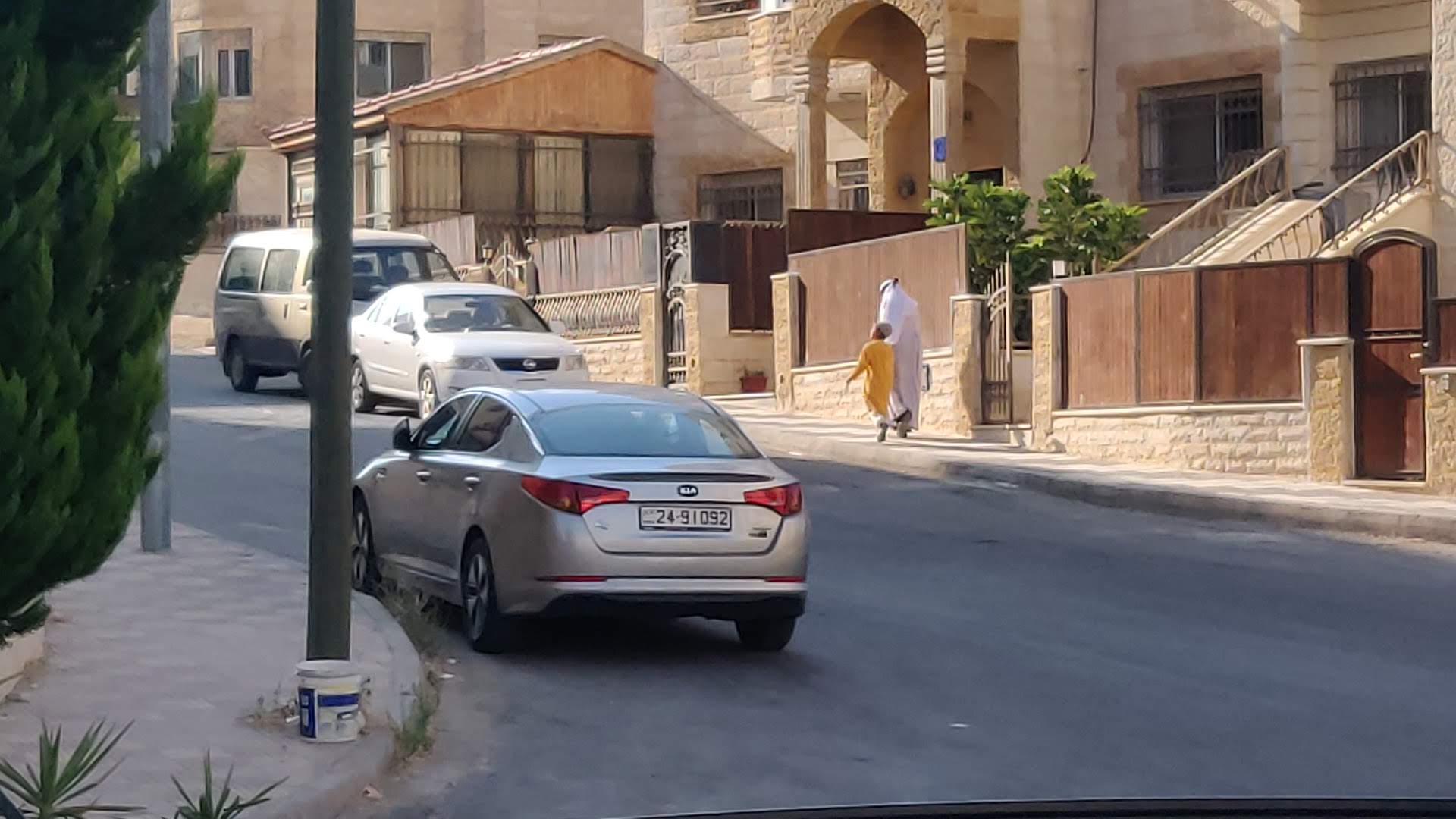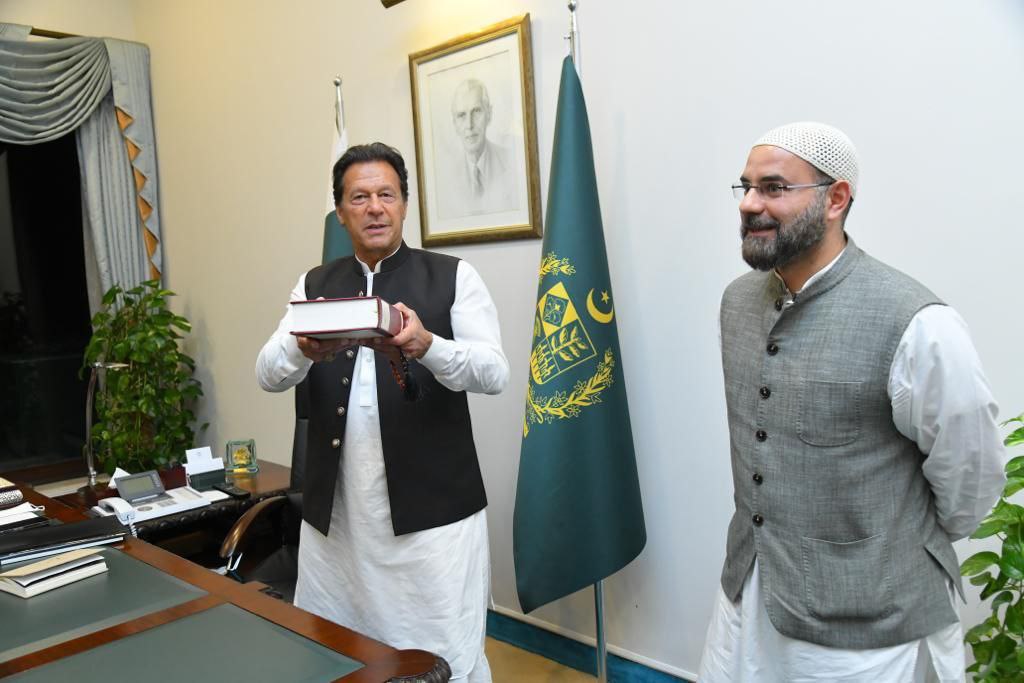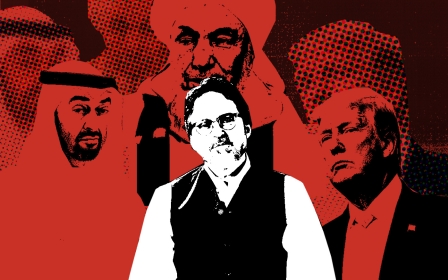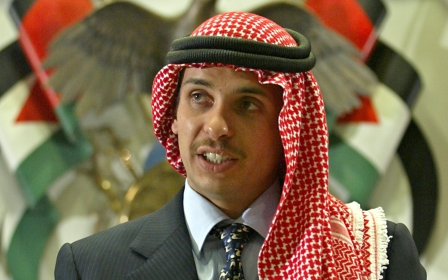Jordan: Sufi community led by US scholar faces child abuse complaints
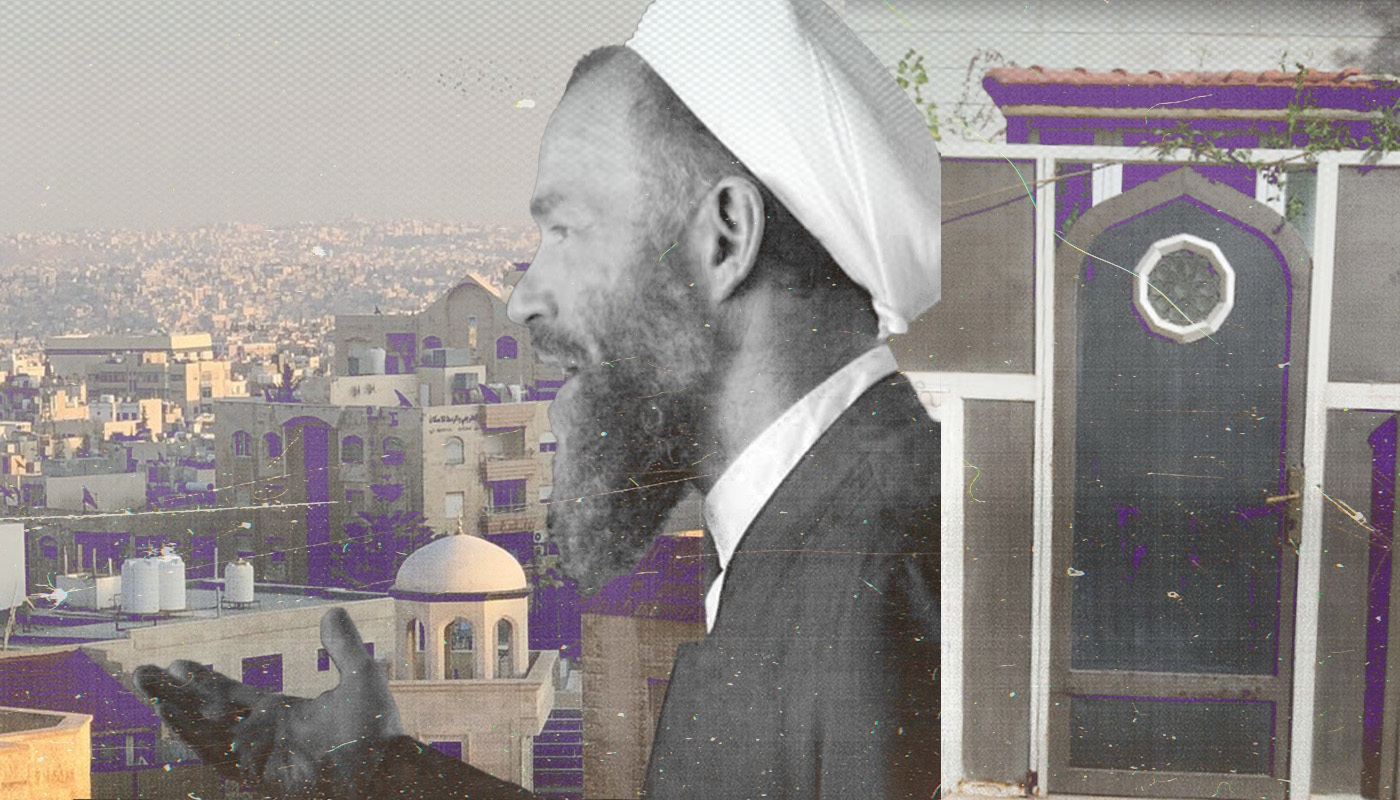
A religious order founded by an American Sufi scholar linked to a senior Jordanian prince has been accused of abusive treatment and physical punishment of children.
Middle East Eye has spoken to dozens of former adherents of Nuh Ha Mim Keller's Sufi order who said they had left the community, based in the Jordanian capital Amman, because of their concerns about how children were being treated and their frustration at the way in which their complaints were handled.
They said children as young as two were subjected to a harsh system of corporal punishment administered by senior members of the community, including Keller’s wife, Besa Krasniqi, in the Zawiya, the seminary at the heart of the community, and teachers in charge of a school for members of the group’s children.
'I saw lots of red flags from the very beginning but ignored them because I told myself that I had been brainwashed by the West and that I didn’t know'
- Sinan, former member of Nuh Ha Mim Keller's order
There is no suggestion that Keller himself was involved in beating or punishing children. But a document and recordings seen by MEE setting out rules for members of Keller’s order, describes him as the “amir” and says that Krasniqi, a New Zealand national from an Albanian background known as Umm Sahl, is responsible for “disciplinary action” within the community.
Keller ordered the closure of the community's school after an investigation by his deputy, Ashraf Muneeb, found that complaints of abuse were credible. But he continued to defend the school and its disciplinary practices, describing it as “99 percent good”.
New MEE newsletter: Jerusalem Dispatch
Sign up to get the latest insights and analysis on Israel-Palestine, alongside Turkey Unpacked and other MEE newsletters
“The kids feel trapped, and they [the leaders of the community] did that through physical domination and by showing that the mother couldn't protect that little two-year-old by hitting them, by scaring them," said Faridah, a former member of Keller’s group.
Neither Keller nor Krasniqi responded to MEE’s requests for comment prior to publication. But a senior member of the community who did not want to be quoted on the record described the allegations as “half-truths” and “one-sided”.
The senior member said allegations of abuse were part of a defamatory campaign by people who had left the community, and described the environment within it as “loving and caring”.
Many followers took the decision to leave the Zawiya in late 2019 after Keller downplayed an investigation he had ordered into the community’s school, known as Futuwwa, which concluded that children had been subjected to abusive treatment. Keller ordered the school to be closed as a consequence of the investigation.
Former followers, known as murids, said the community, once numbering at least 60 families, mostly from western backgrounds, had been reduced to approximately 20 families of "hardcore" followers who remain loyal to Keller despite the abuse complaints.
Some families moved because of the Covid-19 pandemic, but the vast majority, according to insiders, left because they feared for the safety of their children and their mental health.
“The main reason for leaving was coming to grips with what was happening,” said Sinan, a former female murid who lived with the community in Jordan.
“I saw lots of red flags from the very beginning but ignored them because I told myself that I had been brainwashed by the West and that I didn’t know.”
Key people who have left the community in Jordan and his Sufi order include Muhammad Isa Waley, a former curator for Persian and Turkish manuscripts at the British Museum and the British Library, and Islamic scholar Hamza Karamali. Waley served as the Sufi sheikh’s representative or “muqaddam” in the West.
Waley told MEE: “As an insider, I had nothing but kind treatment from Besa [Krasniqi] but it is very obvious to me, and I have to say this in the kindest way possible, that a person who has been proven to do the things that she has done needs help and should not be trying to help others.
“The Futuwwa school is a symptom of something else and a disaster in its own right. And to say that it has been dealt with [by closing it down] is not to say that the illness is being cured."
Royal patronage
Born in Washington state in the United States in 1954, Keller was raised in a Catholic family but converted to Islam in 1977. He then studied Islamic theology and Arabic under sheikhs across the Middle East and North Africa, rising to prominence after his English translations of key Islamic texts were certified by the prestigious Al-Azhar University in Egypt.
Keller moved to Jordan in the late 1980s to be close to his Sufi sheikhs where he obtained Jordanian citizenship. Here, he attracted the patronage of the Jordanian royal family and, in particular, Prince Ghazi bin Muhammad bin Talal, a cousin of King Abdullah who presides over religious affairs in Jordan and serves as the king's personal adviser.
This patronage led to him giving counsel to Prince Ghazi where he continues to serve as a senior fellow in Ghazi’s Aal al-Bayt Institute for Islamic Thought.
For several years he has been named in a list produced by the institute of the world’s 500 most influential Muslims – including in the most recent edition. He recently published his translation of the Quran, The Quran Beheld, after working on it for the last 17 years from his base in the Hayy.
A spokesperson for the Jordanian government told MEE: “Prince Ghazi knows Shaykh Nuh but in no way defended Shaykh Nuh, much less shielded him. He was told of these allegations by one of Shaykh Nuh’s students and specifically encouraged him to take the matter to the police.
"As for the Muslim 500, this is done by a committee and strictly measures influence (good or bad) and in no way endorses them.”
MEE understands that former members of the community did raise concerns with Prince Ghazi. But they did not take the matter to the police because they had already left Jordan and were reluctant to return.
Keller established the Zawiya in the Hayy al-Kharabsheh neighbourhood in the early 2000s. Most of his followers came from across the English-speaking world, including Australia, Canada, the United Kingdom, the United States, and parts of South Asia.
Many who moved there were sold on the dream of making an Islamic utopia in Jordan where they could raise their children free of the vices they believed plagued the West, and live close to their sheikh.
Keller’s followers take a pledge of allegiance or "bayah" to be part of his group. Some murids stay in Hayy al-Kharabsheh for a few months. Others move their families to Jordan and live there for several years.
Murids risked expulsion from the community if they questioned the leadership or if their children broke the strict rules, former murids said.
Many of those interviewed by MEE grew up in Hayy al-Kharabsheh. They spoke only on condition of anonymity amid fears of retribution from their families, some of whom still live in the community, if they publicly criticise Keller’s leadership.
Keller encourages his followers to not engage with those who have left the group and, at one point, described them in a lecture heard by MEE to treat them as “if they left Islam” - a comment he later retracted.
‘Disciplinary action’
The allegations made against senior leaders of the community centre on the “training” and disciplining of young children in the Zawiya and in the Futuwwa school.
One former murid, Hafsa, told MEE that her first memory as a young child in Keller’s community is of being struck on the hand by Krasniqi with a spatula.
“The sharp pain,” said Hafsa. “It would burn every time it hit my hand.”
Like other children raised there and parents who have since left the Zawiya, Hafsa described a system of corporal punishment overseen by Krasniqi in which young children were regularly struck as a disciplinary measure.
'The sharp pain. It would burn every time it hit my hand'
- Hafsa, former student at Hayy al-Kharabsheh
The aim, according to those who spoke to MEE, was to mould the next generation of murids to be quiet and submissive to the group’s leadership.
The rules governing the lives of Keller’s followers in Hayy al-Kharabsheh are set out in the Zawiya manual, which encompasses everything from dress codes for men and women to guidance on raising children and advice on accessing the group's exclusive housing facilities.
The document states that Keller is the “amir” or ruler of the community, and sets out the circumstances in which children could be struck as a means of punishment.
“Disciplinary action is taken by Umm Sahl [Krasniqi] in the training of the children and may entail, after a clear warning, a swat by hand or rubber spatula,” the document states.
“It gets the message across, is firm but not harsh, is traditional Islamic child-rearing, and works so well that it has almost never had to be used even once in the Zawiya for most children.”
But children and women who lived in the Hayy told MEE that corporal punishment was common in the Zawiya. Amelia, a former murid, recalled Krasniqi hitting children at least every fortnight.
"Sometimes it would be just one hit. Other times multiple hits if the kid didn't stop crying," said Amelia.
Yasmina, another murid who lived in the Hayy, also recalled Krasniqi hitting children with a spatula inside the Zawiya.
"The young children would be taken to a [separate] baby or mothers’ room where they would be trained by Umm Sahl," said Yasmina.
“It was clear that physical abuse was recommended. ‘Spare the rod - spoil the child’ was one quote I remember Nuh Keller saying.”
Former murids said Umm Sahl regularly held lectures on parenting and recommended a book called "Raising Godly Tomatoes" to instruct parents on how to raise their children.
Written by an American evangelical Christian, the book attempts to push back against so-called “secular” parenting styles and advises parents to hit their children and be strict on them to ensure obedience.
Pink slips for misbehaviour
Another setting where children were subjected to harsh physical punishment and verbal abuse was the Futuwwa school, which was founded in 2003.
Corporal punishment is banned in school settings across Jordan with teachers risking fines, deduction in pay and risk of termination if caught hitting children. But the Global Initiative to End All Corporal Punishment acknowledges that Jordanian law does not prohibit the practice in the home, non-traditional learning institutes, including daycare centres.
Krasniqi, who was in charge, delegated its running to Hamid Abugidieri, the headteacher, and his wife Sadia Abugidieri, according to emails seen by MEE and former murids involved in the community.
Hamid was originally from Sudan, and Sadia was born in Pakistan, but both were US citizens.
Located on the lower floors of Masjid Bushra, a mosque that was built with funds from Keller's global following, Futuwwa served as a primary and secondary school for the group's children.
The school began as a co-op between a few families, eventually expanding into the community's facility as the number of children living Hayy al-Kharabsheh increased over time. Families felt compelled to send their children to the “sheikh’s school” - or face stigma within the community.
Former murids said Jordanian children were admitted alongside the children of Keller’s adherents, even though this was not permitted in Jordanian law because Futuwwa was not a registered school. Instead, they were hidden when local inspectors visited, according to former murids.
Former pupils recall Hamid beating the boys, while Sadia would verbally admonish the girls if they broke the rules and sometimes join Hamid in hitting the boys.
Corporal punishment was normalised in the community: the leadership told both parents and children it was a “normal” part of living in Jordan and part of their Islamic growth, or tarbiya.
Parents told MEE that the fear of getting hit at school and in the Zawiya led some children to wet the bed and develop nervous ticks.
Former murids and students said Hamid would strike the hands of young boys using a wooden stick called the “harra” that had holes to make it more aerodynamic and let him smack the boys harder. He would discipline the boys in his office in full view of other students who could see inside the room, and sometimes at his home.
Abeera, a former teacher in the school, told MEE: “We were told that the principals were the ones that administered all forms of punishment, and the teachers were not allowed to do anything.
“We had to fill in a pink slip when a student misbehaved and send that along with the student to the male principal of the school.
“Children were terrified of the pink slip. One mother told me that she took her child out of the primary school because her child was having nightmares over the pink slip system. She complained that it was too harsh, but they just ignored her.”
A similar system involved parents or guardians of young boys putting a mark on a piece of paper when their own children were perceived to have misbehaved at home.
The boys would then take the piece of paper to Hamid’s home, where he would smack them with the harra for every mark.
Rosie said the system was "developed with several single mothers with their boys in particular. So this idea that a mother could not raise her sons [without a father] was constantly being talked about”.
She remembered hearing stories of her friend’s brothers coming home from school “with red and puffy hands”.
Asiya, a former student, recalled an instance when an orphan child was being harshly beaten by Sadia inside the school. She said this child had been smacked “regularly”, but in this instance, the boy was crying and begging for Sadia to stop.
'I've seen him get beat up a lot of times, but I've never seen him cry, and I remember that day, even all my classmates were all just really shaken up'
- Asiya, former student of Hayy al Kharabsheh
“I've seen him get beat up a lot of times, but I've never seen him cry, and I remember that day, even all my classmates were all just really shaken up,” said Asiya.
"And she was yelling at him, stuff like ‘You know your father died, and now I need to raise you, and I'm going to raise you the proper way.’"
It was common for parents who lived in the Hayy to trust the leadership and their deputies, according to former murids.
“They would often silence parents by telling them that it's the sheikh's school,” said Abeera. “No one would dare speak out and when a few families did, they were attacked as being obsessed with their children, not knowing anything about discipline.”
But, following complaints by parents, Keller asked his deputy, Ashraf Muneeb, to investigate the allegations of abuse at the school.
Muneeb concluded, in what he later said was a preliminary investigation, that abuse did take place and said the school had caused “greater harm” than benefit, according to emails seen by MEE.
Keller subsequently asked the two headteachers at Futuwwa to leave Jordan and closed down the school.
Hamid Abugidieri did not respond to MEE’s requests for comment. In an email to MEE, Sadia Abugidieri described the situation as an “injustice” which had caused the couple “tremendous financial loss and in our social standing”.
She denied that Futuwwa was a school, describing it as a “private, registered and licensed Jordanian learning institute”.
‘Trauma industry’
Despite ordering Futuwwa’s closure, Keller continued to defend the school, describing it as being “99 percent good and one percent bad” for the children, according to a recording of Keller speaking to the community heard by MEE in which he addressed the findings of the investigation in January 2019.
Keller then delivered a series of lectures titled the “trauma industry” to deter parents from seeking counselling for their children, according to former murids.
He used these sermons to address complaints that children in the school had suffered “trauma” by saying that the term should only be used in relation to people who had experienced war or extreme physical violence.
“When people openly define trauma and believe they’re traumatised by normal hardship, then talking about it reinforces their belief. That everyday belief becomes a part of their identity and their sense of victimhood and self and community becomes wrapped up in it,” Keller told his followers in a speech in October 2020.
In late 2021, after Middle East Eye first approached senior members of the community for comment, Muneeb clarified that his report had been an initial investigation which established a case to answer.
“The goal in the procedure I headed was… to receive allegations to ascertain if they were valid to be evaluated with a case and hearing,” he wrote in emails seen by MEE.
“My role did not extend beyond that. The next step would have been for Sheikh Nuh to appoint an arbiter or judge and a fair hearing held.
“This would have taken months, and did not take place, and would have been very difficult to find unbiased witnesses, for, in such an atmosphere of heated sides.”
A senior member of the community, who would not speak on the record, also played down Muneeb’s investigation.
They said that the allegations were exaggerated – the school had been closed without a full or fair investigation and those accused had not had a proper opportunity to rebut the allegations during the investigation.
They also said that the claims were exaggerated and their experience of the community and school is that it was loving and caring.
Muneeb did not respond to requests for comment. MEE also approached the Jordanian Ministry of Education for comment but had not received a response at the time of publication.
This article is available in French on Middle East Eye French edition.
Middle East Eye delivers independent and unrivalled coverage and analysis of the Middle East, North Africa and beyond. To learn more about republishing this content and the associated fees, please fill out this form. More about MEE can be found here.


